BunnyVac
USA Pasteurella multocida Vaccine
The BunnyVac is a Pasteurella multocida vaccine for use in healthy rabbits which became available in the USA in May 2013. Here are the history, indications, contraindications, and risks to your rabbit herd or your pet rabbits.
History of the BunnyVac
Pan American Vet Lab (PAVL) has been producing various antibody products over the last 20 years. To do so, the laboratory maintains a herd of up to 300 rabbits. In 2007, a virulent strain of P. multocida tore through the herd, resulting in a severe outbreak of pasteurellosis with devastating effect.
Because the laboratory earns $200 – 2,000/month for each of its lab rabbits, you can’t just cull sick animals without sustaining catastrophic losses to the business.
Therefore, they embarked on a serious effort to
create a vaccine against P. multocida.
Over a period of roughly 3 ½ years, the early versions of the vaccine were used on the lab rabbits, the formula tweaked every 6 months or so, and then used again on the next generation of rabbits. After 4 ½ years it was clear that the vaccine was working “very well.”
Fast-forward to 2013. Where PAVL used to sustain a
loss of 1-2% of rabbits (3-6) per month to pasteurellosis, they now were losing that
number per year. The process to obtain these results took about
6 years. They now vaccinate their newly purchased New Zealand White rabbits before bringing them into the lab. No new rabbit enters the lab without being vaccinated first. According
to Mr. Bob Glass*, inventor of the BunnyVac, “they never get sick.”
BunnyVac Clinical Trial Results
Initially, the intent was to develop a vaccine for use in the lab herd only. But while Mr. Glass could readily see the commercial potential of a vaccine which would be available to the general public, it took a couple years to convince the Lab’s management that a bunny vaccine was important.
The application was submitted to the USDA, along with the pre-clinical trials that had already been done very successfully.
A clinical trial followed. For this blinded study, 30 rabbits were divided into 3 groups. Group A received vaccine A, Group B received vaccine B, while group C received a placebo. The study administrators however did not know which group was which. The vaccines were administered on day zero and day 28. The challenge was administered 3 weeks after the second vaccination.
- 100% of the control group developed severe pneumonia due to Pasteurella
- 60% of the control group rabbits died from subsequent pasteurella infection.
- Zero animals died from the vaccinated groups
- A small number of animals in the vaccinated groups showed slight nasal congestion and clear nasal discharge for 24-48 hours as may be expected when the immune response defeats a potential infection.
The USDA granted the license quickly due to the strength of the data. According to the bottle labeling, BunnyVac is:
“For use in healthy rabbits as an
aid in the prevention of pasteurellosis (snuffles).”
How to Obtain and Administer the BunnyVac Vaccine
http://pavlab.com/pavlab/bunnyvac/ - you'll find links to info and ordering here.
Administer
the vaccine via subcutaneous injection on day 0, day 30, and annually thereafter.
Immunity 101, According to Mr. Robert Glass
There is no single gene that confers safety from snuffles. Any rabbit, if exposed to a massive dose of pasteurella germs, will become sick and possibly die, even if you believe it has a very strong immune system after years of culling sneezing animals from your herd.
But culling for wellness is still a good thing. If you continually select for healthy animals, you will have eliminated the disease organisms from the barn, and selected those rabbits with robust immunity. With selective breeding, you can develop a herd that has a better capability to recognize P. multocida as a pathogen, mount an attack against it more quickly, and overcome the germs.
The theory, according to current immunologic thought, is that the vaccine enhances this process so that the immune system reacts with a vengeance upon rapid recognition of any P. multocida germs in the rabbit’s body.
BunnyVac will not prevent 100% of pasteurellosis disease cases. To be effective, the rabbit needs to have an adequate immune response, meaning not immune-compromised. Rabbits with a weak immune system will not respond to the vaccine. If your rabbit is sick, it is not always easy to know whether your rabbit’s immune system is competent but drained through a second, hidden, infection, or whether it was simply inadequate.
Additionally, a certain percentage of rabbits, estimated to be 10%, will not build antibodies to P. multocida despite vaccination.
Visit Vaccine Immunity for Mr. Glass’s
explanation of how the BunnyVac stimulates immunity to P. multocida in rabbits
(opens in a new window).
Rabbit Condition Enhancers: BOSS, Whole Oats (#ad)
Frequently Asked Questions about BunnyVac
How long does the vaccine last in the rabbit?
It will protect the vast majority of rabbits for a
full year. The rate at which a rabbit will revert to its pre-vaccine state will
vary from rabbit to rabbit. If your rabbit falls sick of snuffles before the year
is up, this may indicate the rabbit had a weak immune system or other undetected
disease.
Can you vaccinate already sick rabbits?
The short answer is yes – see the information
below under “BunnyVac Off-Label Use.”
However, quoting Mr. Glass: “It is important to know that BunnyVac is not licensed to, nor do we claim that it will cure an ongoing infection. We have anecdotal observations of diminished symptoms in clinically ill rabbits after treating with BunnyVac. The study to prove or refute this has yet to be done.”
The sick rabbits in Mr. Glass’s laboratory became asymptomatic. As
more people obtain and use the vaccine, similar stories are reported that
symptoms diminished or disappeared. These rabbits must
then be recognized as possible carriers of P. multocida bacteria.
Do you need a different vaccine dose
for dwarf rabbits as opposed to New Zealand Whites or Flemish Giants?
No. The
sought-for immune response is not connected to the size of the rabbit.
Administer the same dose to all sizes and breeds of rabbits.
How old should your rabbits be
before they can be vaccinated? The first dose can be given when the bunny is 6-7 weeks old, or
weaning age. At this age the immune system is fully functioning,
which is one of the chief criteria for vaccine efficacy.
Can you vaccinate a pregnant doe?
Any stress
on pregnant does can over-strain the immune system. Vaccines are specifically designed
to strain the immune system in order to elicit the desired effect of antibody
production. For this reason, it would be very unwise to vaccinate beyond a week
after breeding. Vaccination with the BunnyVac is not recommended during
the last half of the pregnancy.
Mr. Glass vaccinates his laboratory does AT breeding or a week earlier in order to avoid
pregnancy stress.
Are there any side effects from the
vaccine?
Yes, two side
effects have been noted.
- Sterile abscesses have been reported
in up to 25% of animals. However out of 300 animals in the Field Safety study,
they obtained just a 1% rate. The vaccine is administered subcutaneously, and
if any is deposited in the dermis layer of the skin, this may contribute to the
development of a sterile abscess lump, which typically goes away within a week.
Therefore, if the vaccine can be administered entirely into the subcutaneous space without getting any in the dermal layers, the likelihood of a sterile abscess drops to near-negligible. - Clear nasal drainage. This is an immune-mediated response in the nasal passages. The drainage clears up within 48 hours, usually, and is not infectious, according to Mr. Glass.
Can a rabbit get an infection from
the vaccine?
No. The
vaccine contains killed bacterial matter. Everything is dead in the vaccine
vial.
Can you eat a vaccinated rabbit?
Only after
a 21 day withdrawal period.
Will the vaccine eliminate the need
for culling for pasteurellosis?
No, not normally. First, the
vaccine is ineffective if the rabbit’s immune system is not adequate.
Second, the vaccine is not 100% effective.
And third, in Karen's opinion, the wise breeder
WANTS ironclad immunity in every rabbit in his or her rabbitry. The
BunnyVac is not a silver bullet, and culling should continue to be an unpleasant
chore.
BunnyVac Off-Label Use
According to Mr. Glass, BunnyVac CAN be
used “off-label,” that is, for “immunotherapeutic” purposes - as a treatment
for a rabbit showing signs of pasteurellosis. This is called off-label, because
“treating” sick rabbits is more than just disease prevention which is the labeled use according to the USDA license.
BunnyVac Warnings
- “BunnyVac is not licensed to nor do we
claim that it will cure an ongoing infection. We have anecdotal (un-proven)
observations of diminished symptoms in clinically ill rabbits after treating
with BunnyVac. The study to prove or refute this has yet to be done” (Mr. Bob Glass)
- There IS thimerosol preservative in the
vaccine, which delivers a significant dose of toxic mercury to any animal
vaccinated. (Exactly how much has not been communicated.) Because the vaccines are packaged in multi-dose vials in order to
minimize costs to the breeder, a preservative is required.
- “This vaccine is not a panacea that will
eliminate Pasteurella from every rabbit. It is just one more tool that each
producer should evaluate as an addition to their management program. Good
hygiene cannot be replaced and certainly should not be replaced” (Mr. Bob Glass).
- The vaccine is thought to have a 90%
rate of effectiveness. Therefore, 10% of vaccinated rabbits will remain
unprotected, and may succumb to pasteurellosis upon sufficient exposure to the
bacteria.
- Sick rabbits which are vaccinated appear
to continue to be contagious, according to anecdotal reports, despite the
cessation of some or all symptoms. Studies that demonstrate length of subsequent continuing contagion have NOT been done. It cannot therefore be stated that vaccinated
rabbits are not a danger to other rabbits. Anecdotal reports imply that they ARE a danger, however the studies haven't been done.
- The BunnyVac is approved for use in the
USA. It is not approved for use in Canada or overseas.
- Once signs or symptoms of pasteurellosis have been eliminated from your rabbit herd, are the remaining animals immune-system-strong, or are they simply unchallenged? Studies
subsequently challenging these vaccinated and asymptomatic rabbits with P.
multocida have NOT been done. (It is becoming evident that in humans, immunity via vaccination is far weaker than naturally acquired immunity. Is the same true in rabbits? The studies have not been
done.)
Indications and Contraindications
The development of this Pasteurella multocida vaccine was done in order that a laboratory would not need to cull for disease resistance due to the prohibitive loss of revenue during that culling process. 3+ generations of fully vaccinating the entire herd has resulted in a 1-2% rate of loss per year (reduced from the same rate per month). In this lab, EVERY SINGLE NEW RABBIT is now vaccinated BEFORE introduction to the lab herd, and once a part of the herd, they never leave the premises.
The health of this herd is now dependent upon the vaccine. (I’m quite sure Mr. Glass has NO plans to bring an unvaccinated rabbit into his laboratory without first vaccinating it.)
Following a similar plan is fine IF:
- You own one or a few pet rabbits, which don’t participate in outside activities such as rabbit jumping. If you vaccinate a sick pet, you should also vaccinate all the pet rabbits in your household.
- You commercially raise meat rabbits and NEVER remove vaccinated breeding animals from your barn. (It is understood that the market [fryer] rabbits will not be vaccinated.)
- Yours are laboratory rabbits used solely
within a laboratory setting and NEVER leave that setting.
Use of the BunnyVac in a Show Rabbit Herd
Optimal immune function is essential as a breeding parameter in show and production rabbits. Certainty as to which rabbits have naturally strong immune systems is essential in show and production rabbits. Use of vaccination protocols cannot help but remove this certainty.
Additionally, the use of a Pasteurella multocida vaccine may result in the strong temptation to keep that gorgeous but sneezing rabbit, eliminate the symptoms through vaccination, and then perpetuate its weak health genetics in its progeny.
Vaccinations do not a strong immune system make!
“This vaccine is not a panacea that will eliminate Pasteurella from every rabbit” (Glass).
It is in the best interests of a show rabbit herd to refrain from vaccinating with the Pasteurella multocida vaccine, in my opinion. Instead, continue to selectively breed for health, until all the supplemental studies have been done and a much clearer picture of the vaccine's efficacy and risks can be fully ascertained.
Links to more pages about Pasteurellosis and vaccine immunity:
*Mr. Robert Glass has his Bachelors of Science in Human Medical Technology. He has been working in the field of veterinary immunology for over 20 years.
Double-Value Guarantee
Our policy is to always OVER-deliver
on value,
which is why your purchase is fully covered by our
Double-Value
Guarantee.
Go ahead - take any of our e-books for a test drive. Peruse our detailed informational and educational e-books. Examine our plans for building rabbit cages, runs, or metal or PVC hutch frames. Check out the Rabbit Husbandry info e-books.
If you aren't completely satisfied that your e-book purchase is worth at least double, triple or even quadruple the price you paid, just drop us a note within 45 days, and we'll refund you the entire cost. That's our Double-Value Guarantee.
Note: When you purchase your
e-books, they will be in PDF format, so you can download them to any device that
supports PDF format. We advise making a back-up copy to a drive or cloud
account. If the books are lost, you can also purchase another copy from Raising-Rabbits.
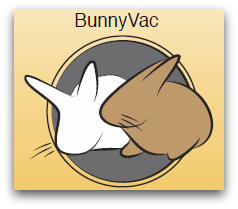
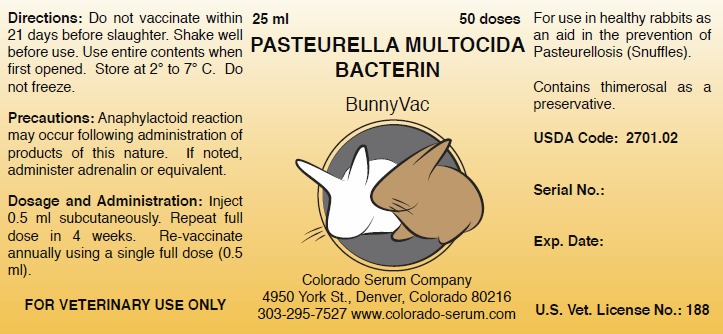
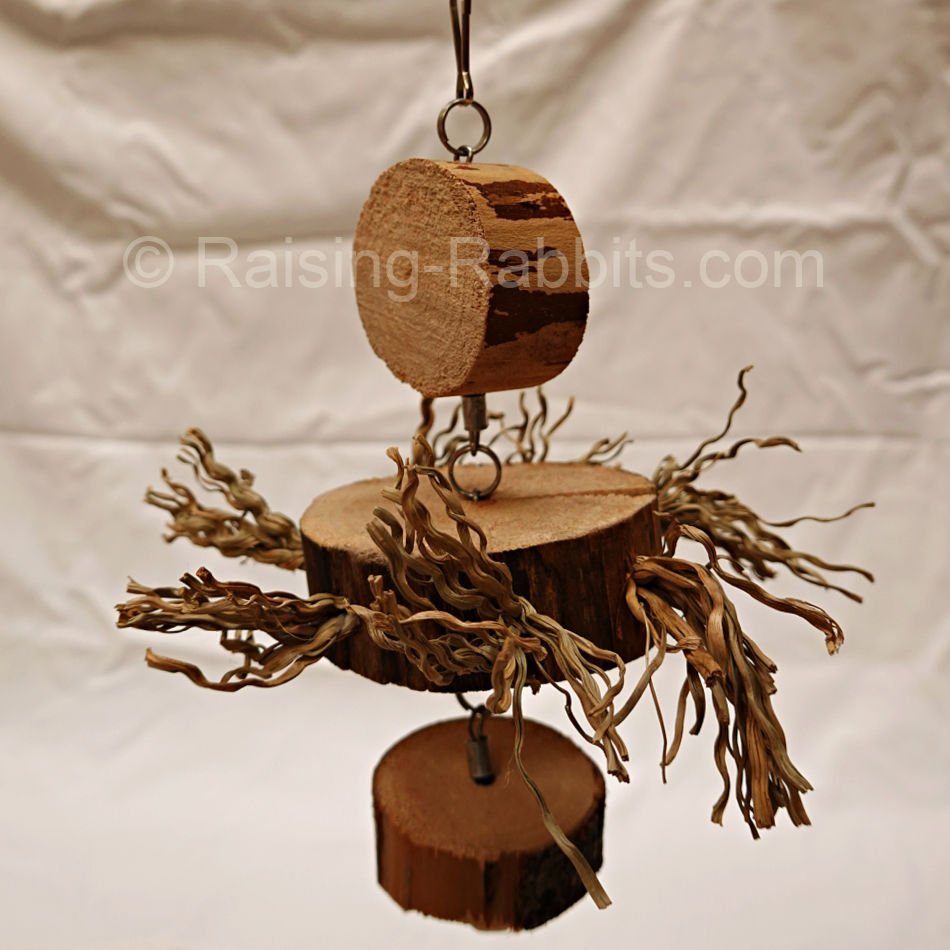
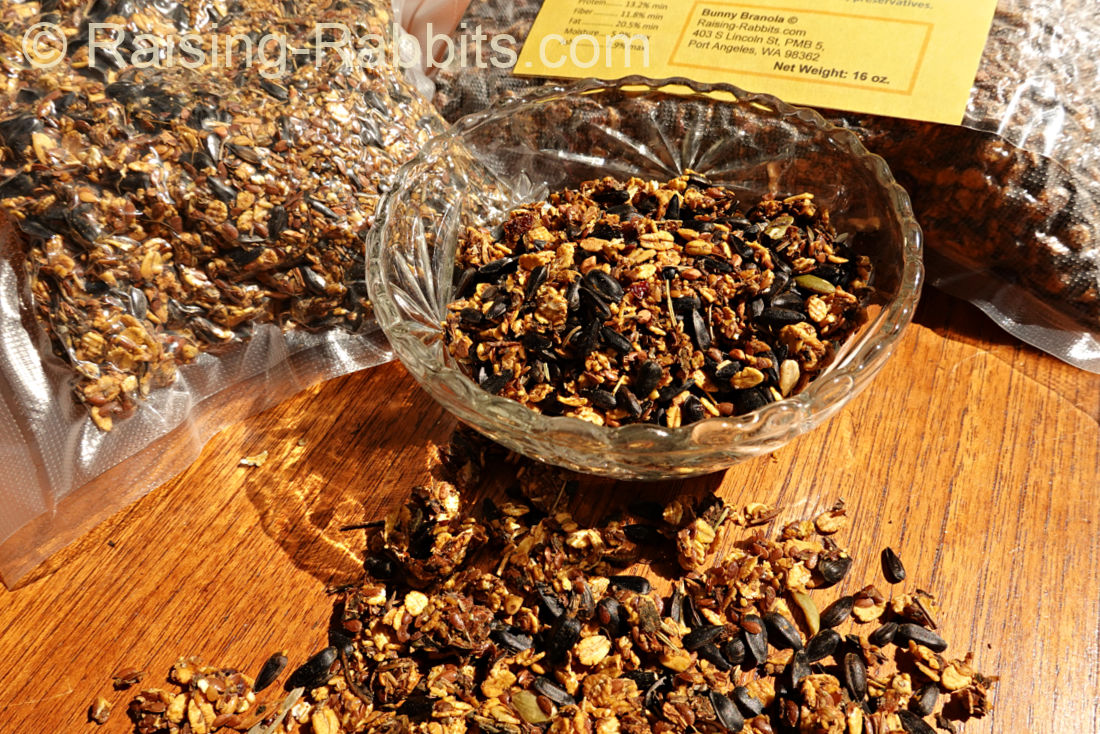

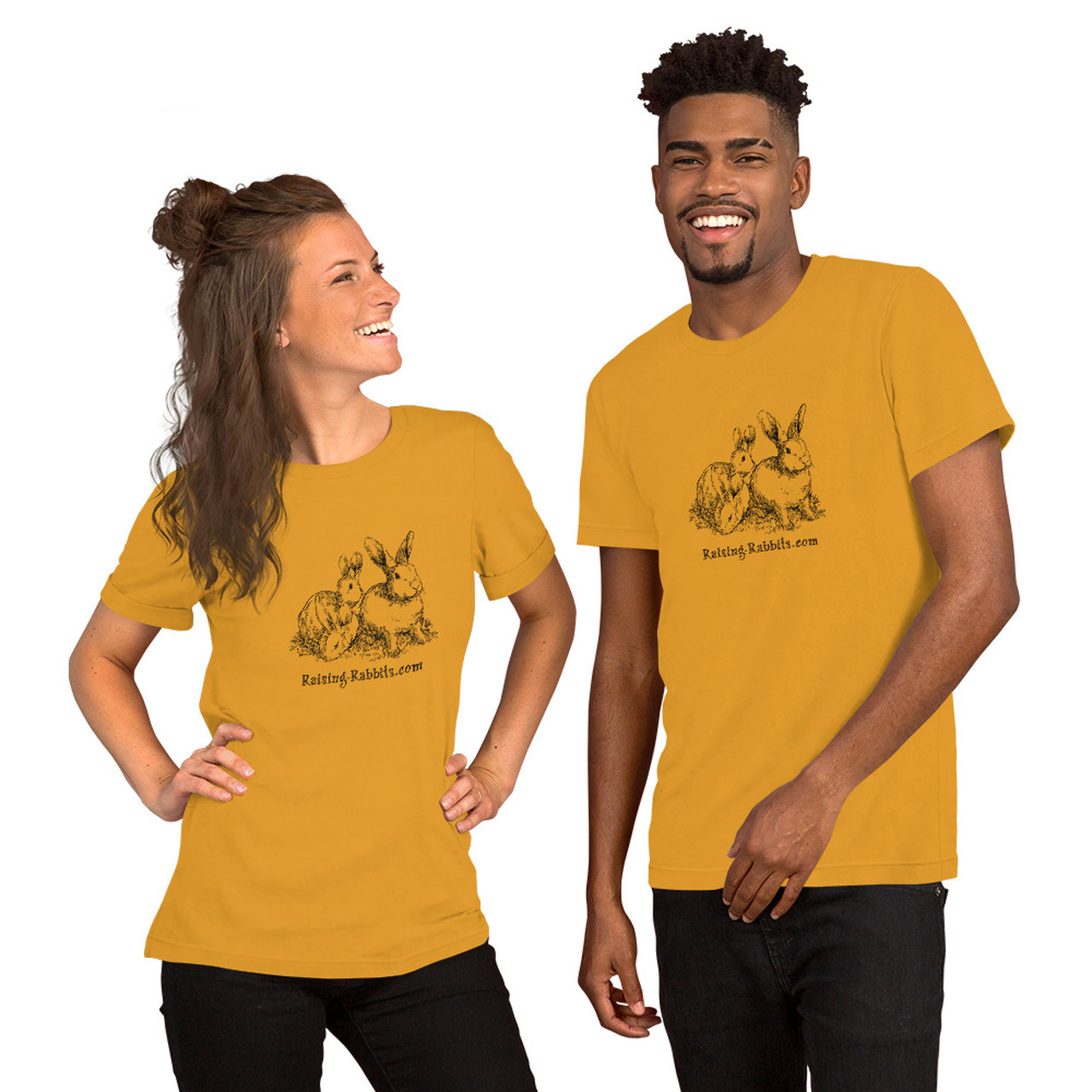

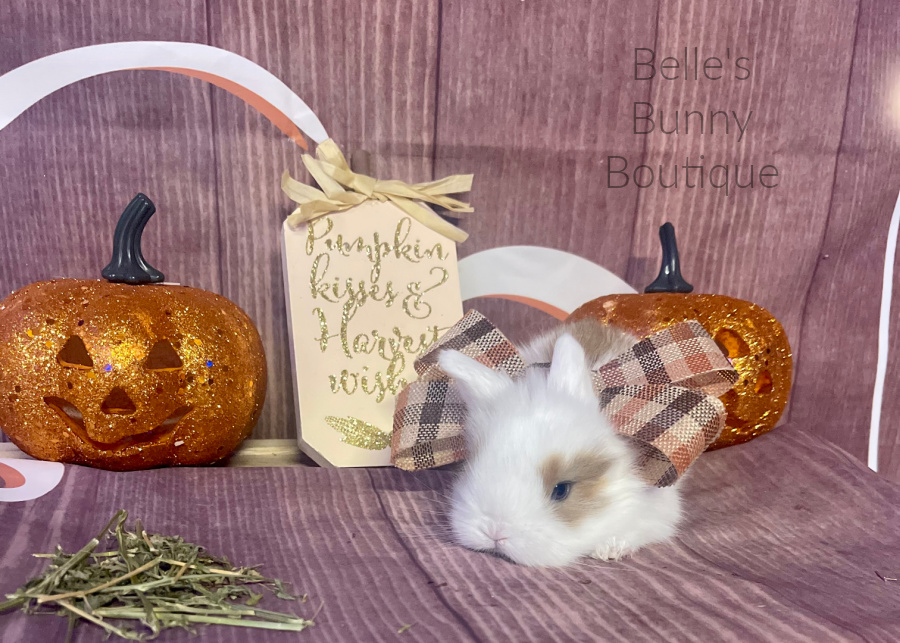
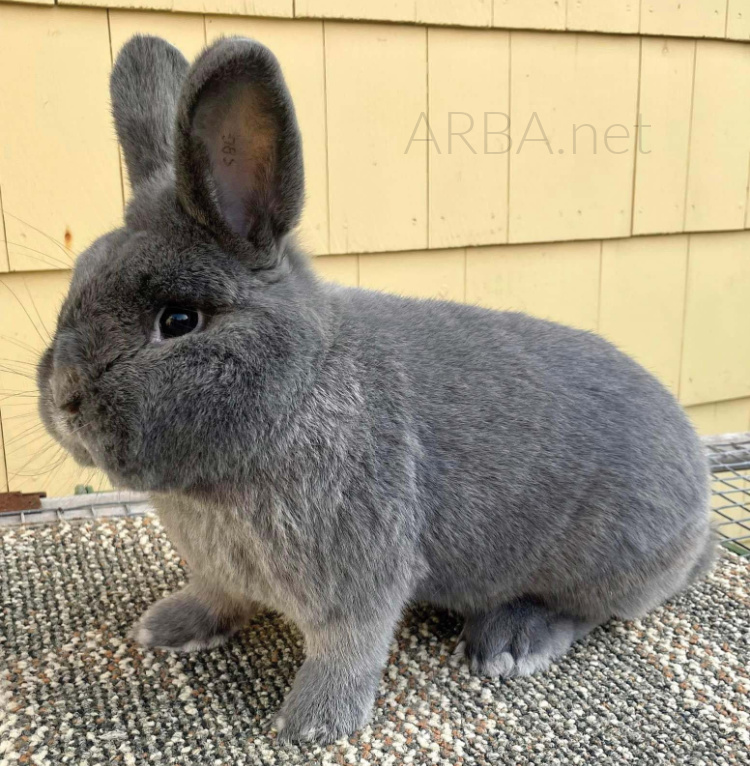
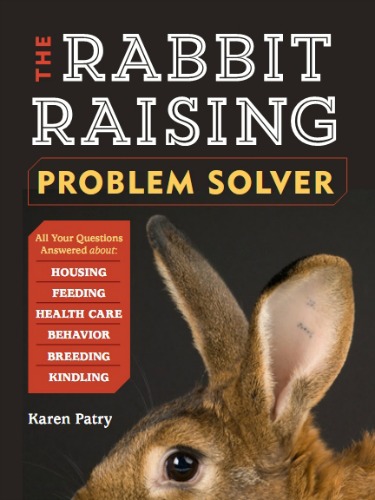

New! Comments
Have your say about what you just read! Leave me a comment in the box below.